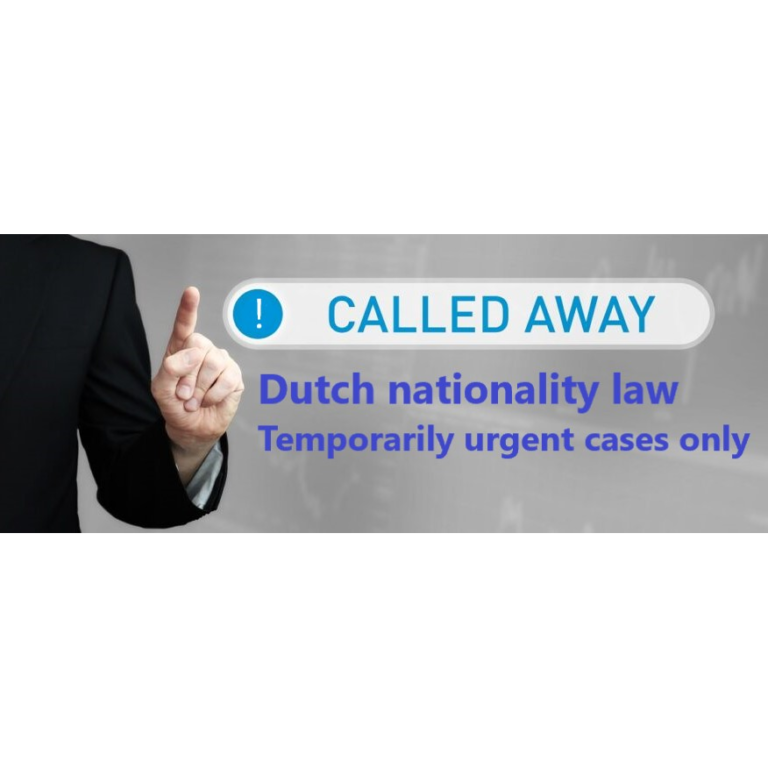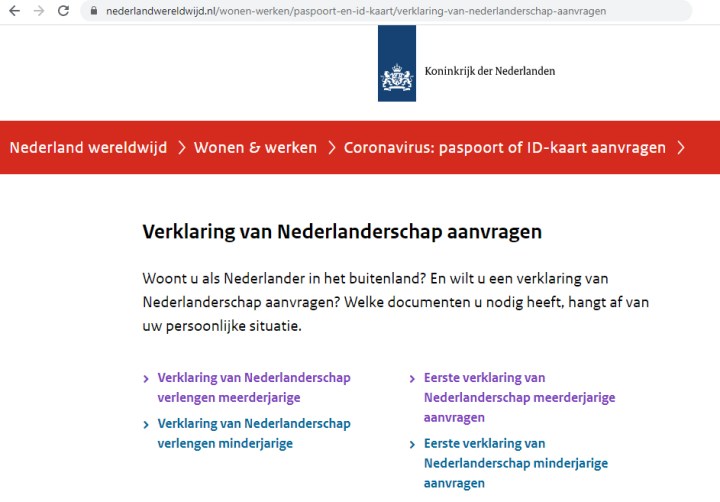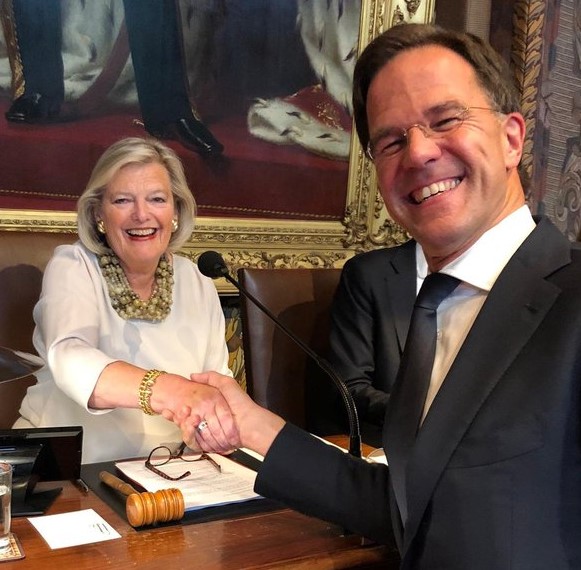Proportionality Test / Tjebbes Bill 35859- (R2157)

The Dutch Secretary of State for Justice and Security, Ankie Broekers-Knol, recently presented two memorandums to the Dutch House of Representatives, which once again shows that Mrs Ankie Broekers-Knol prefers to ignore the advice of the Council of State and the permanent Commission for Justice and Security.
What we heard from the Council of State and the Commission was pretty much in line with the questions and proposals of Nederlanders in den Vreemde (The Dutch in Foreign Parts) and interest groups such as the GOED Foundation. Proportionality should not only apply to people who (want to) make use of their European rights of Free Movement, with very specific criteria at the time of loss of nationality, but proportionality and a proportionality test should also be available to all Dutch citizens. Besides, isn’t preventing loss better than repairing?
I note that the single nationality principle and loss possibilities have been in Dutch law since 1892. However, the world and the Netherlands have changed quite a bit and there have been dozens of small legislative changes over the decades, and two major changes in 1985 and 2003. The changes, as the case with this proposal, have included many conditional exceptions. All those exceptions, and exceptions to exceptions and conditions to everything, have created legislation that can be called complex. So much so that a professor has declared the nationality law a monstrosity. With this proposal and now yet another conditional exception, to retrospectively regain nationality, there is even more complexity.
We often hear how the public and officials make many mistakes. For example, the public often receives incorrect information from officials about the legislation, with disastrous consequences. And there are still many misconceptions among the public. This is due to the complexity. But also due to the limited public information. After criticism in 2016 from the National Ombudsman, the government may have improved a little but it still can be done so much better. However, the Secretary of State believes that the government is doing enough and refers to the individuals, the citizens, their own responsibility.
It is also possible to doubt if there is equality in law. Why can someone who is married take a different nationality and an unmarried partner cannot? What about same-sex partners who are legally not allowed to marry in many countries? And now with this bill, why should we automatically take away Dutch nationality from someone who lives in the Netherlands, or lives outside the EU, but not from someone who wants to make use of, or makes use of, their EU freedom of movement rights?
Given the confusion in society regarding the nationality law and its exceptions, why do we still allow automatic and direct loss? This is precisely what is unreasonable, disproportionate. The Netherlands has agreed with the EU that it will be proportionate. The EU Court ruled that automatic and direct loss was not proportionate. Because the ruling concerned the situations of certain persons for which it was already too late, the Court of Appeal determined that a proportionality test had to be applied to these persons and that the nationality had to be returned retrospectively. This does not mean that the EU Court considered that in general one should only consider whether the loss was proportional after the loss of nationality. The interpretation of the court verdict and to adopt this in the current bill as limited as possible therefore indicates the reluctance of the Secretary of State for Justice and Security, Ankie Broekers-Knol.
This is also repeated time and time again in the memorandums to the House of Representatives. The bill is “purely intended to bring the RWN into line with European Union law as soon as possible. More far-reaching changes go beyond this scope.” More or less, we’re not going to do more than the verdict absolutely compels us to do. We do not consider proportionality for all other Dutch citizens, nor before loss of nationality.
A change in the law like this can normally take months or years. If the Secretary of State writes that they want to arrange this “ as soon as possible ”, is there a hurry because we now have a caretaker cabinet? Push the law through because the questions of real modernization or real proportionality might be too difficult for the current government?
When the Council of State and the Commission showed that it is indeed reasonable to approach all (former) Dutch citizens proportionally, we were hopeful that the Secretary of State might also see that there are indeed possibilities to make the legislation more reasonable and more humane. Unfortunately, despite the advice and the questions, the bill has not changed and is now before the House of Representatives.
We therefore hope that the Dutch House of Representatives will look further than just the literal interpretation of the ruling. And that the House of Representatives makes the nationality legislation at least more proportional for all Dutch people. And we hope that the very limited possibilities to regain nationality (after unexpected loss) will be made easier. And if they may also want to reconsider allowing another nationality, that would be perfect. Instead of tinkering with an old car full of historic tweaks we don’t comprehend, maybe it’s time to trade it in for a new modern and more fuel-efficient car. Switching would certainly save the government a lot in maintenance costs.



